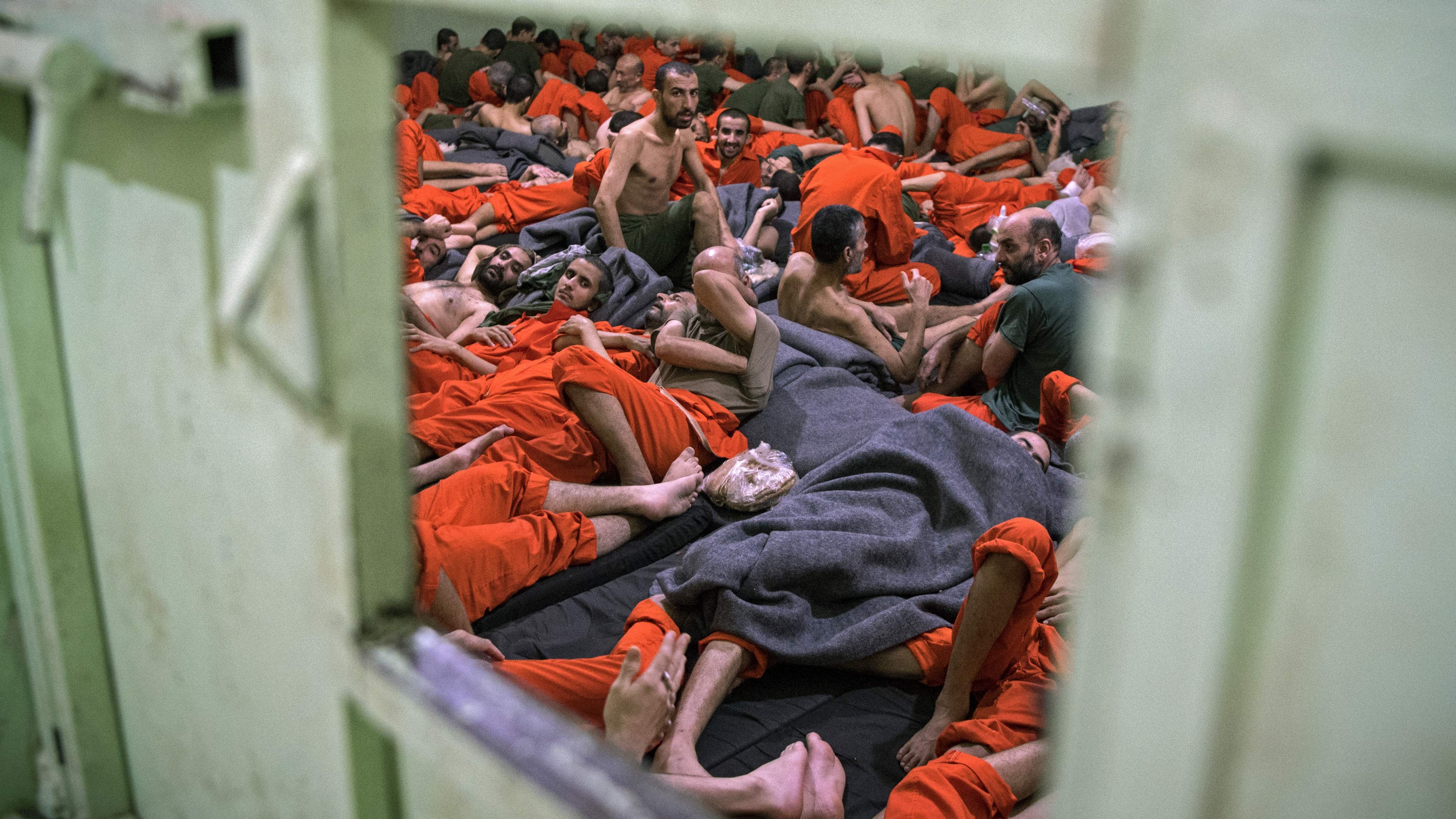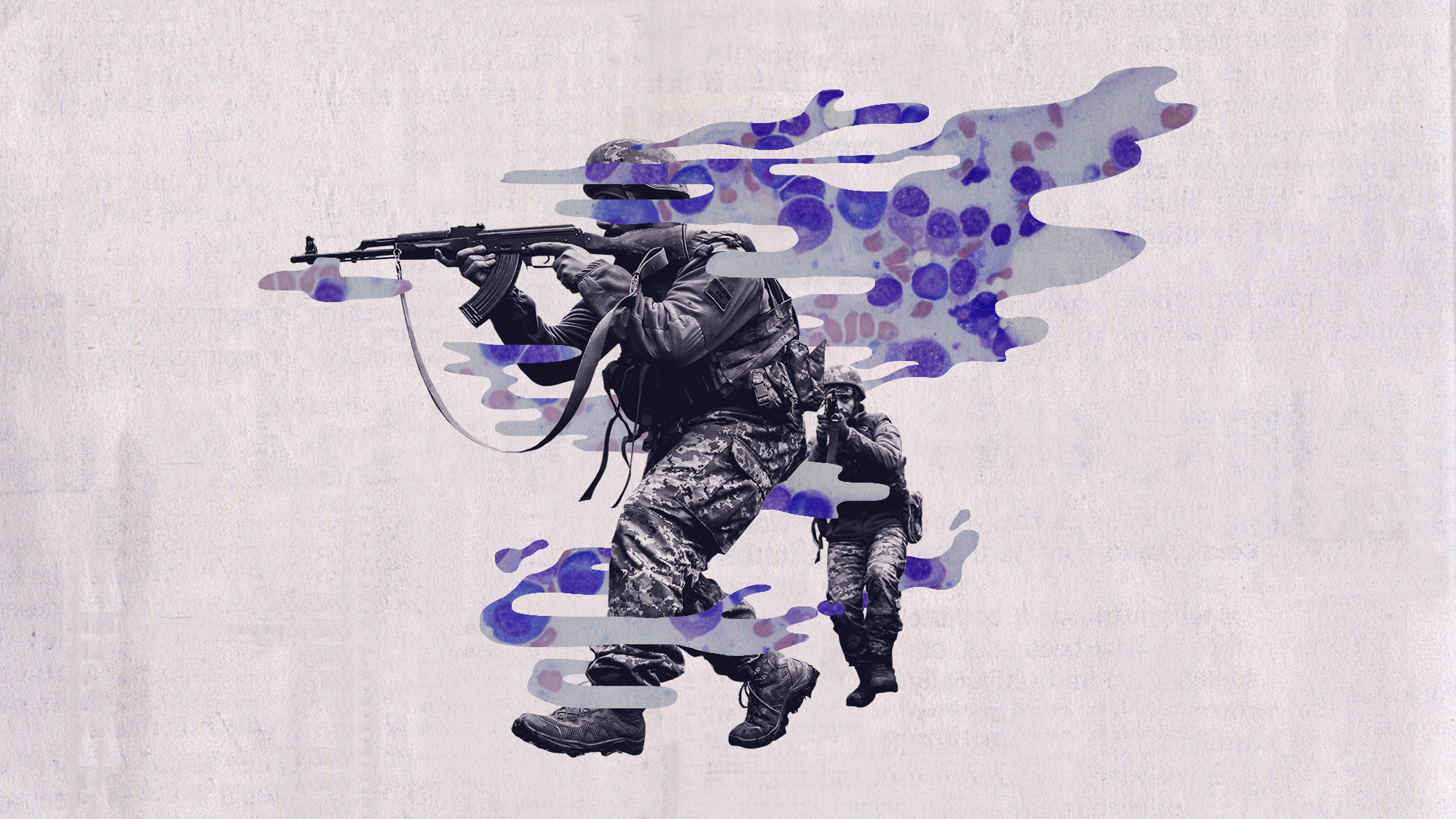Coronavirus: how has Isis dealt with the outbreak of Covid-19?
Terror group finds new opportunities amid the global pandemic

A free daily email with the biggest news stories of the day – and the best features from TheWeek.com
You are now subscribed
Your newsletter sign-up was successful
In early March, as coronavirus swept across Europe, Isis issued a surprising message to its members.
Adopting a safety-first approach, the terror group’s al-Naba magazine stopped encouraging attacks on western nations, instead advising its members not to travel to Europe, which it described as “the land of the epidemic”.
The group also told its followers to “put trust in God and seek refuge in Him from illnesses”, but to also “cover the mouth when yawning and sneezing” and to wash their hands frequently, Politico reports. Terror groups traditionally thrive in areas undergoing disruption and chaos. So how has Isis handled the past eight months?
The Week
Escape your echo chamber. Get the facts behind the news, plus analysis from multiple perspectives.

Sign up for The Week's Free Newsletters
From our morning news briefing to a weekly Good News Newsletter, get the best of The Week delivered directly to your inbox.
From our morning news briefing to a weekly Good News Newsletter, get the best of The Week delivered directly to your inbox.
‘Take no terror-risks’
Isis has “followed the outbreak from the beginning of this year, regularly including updates in the news briefs section of the [al-Naba] newsletter”, US-magazine Homeland Security Today (HST) says.
In January, al-Naba reported on a “new virus spread[ing] death and terror in China”, explaining that “communist China is panicking”.
And as the outbreak became more serious, Isis shifted to “criticising the Chinese government for hiding the scope of the coronavirus outbreak”, which HST speculates may have been linked to a fear the virus “could also pose a threat to their members or supporters”.
A free daily email with the biggest news stories of the day – and the best features from TheWeek.com
Al-Naba linked the outbreak to the persecution of Muslims in China, claiming in February that “many Muslims rushed to confirm that this epidemic is a punishment from God Almighty” for China’s abuse of the Uighurs.
The information campaign culminated in the magazine running a “full-page infographic on the back cover” in March, instructing followers that suspect they had the virus to “stay away from areas under Isis control” to fulfil the holy “obligation of taking up the causes of protection from illnesses and avoiding them”, Politico says.
‘Threats and opportunities’
Extremists first saw the pandemic as an opportunity to “launch new attacks, motivate followers and reinforce their credentials as alternative rulers of swathes of unstable countries”, The Guardian says.
However, as the full threat of Covid-19 became more apparent, “the reaction to the pandemic has evolved within extremist organisations”, the paper continues.
For Isis, the deadly virus has “translated into regional opportunity”, allowing the group to “expand upon the rebuilding effort it began last fall and use the coronavirus to spread its own, more violent flavor of destruction and terror”, writes Gayle Tzemach Lemmon, adjunct senior fellow at the Council on Foreign Relations, on NBC News.
While the Taliban began releasing images of its public health teams, Isis “moved the fighting from Syria to Iraq [and] is strengthening, both financially and militarily”, Stein Grongstad, head of Norway’s forces in Iraq, told the broadcaster.
Grongstad described the situation in the Iraq as a “paradox”, one in which Covid-19 was weakening nations just as Isis was regaining strength.
The pandemic has also prompted fears that “Islamic militants [may] win support as corrupt, inefficient and poorly resourced governments across Africa and the Middle East fail to provide adequate care for already distrustful populations”, The Guardian reports.
“Few countries hit badly by extremism have effective health systems”, meaning there is a public services gulf that groups such as Isis could look to fill, the paper adds. The group has heightened its efforts to liberate detainees (pictured) and convert refugees who have been left in an increasingly desperate situation by the pandemic.
Rising violence
Iraqi military officials told The Associated Press, that 2020 has seen Isis “shifting from local intimidation to more complex attacks”. The officials attributed the change in tactics to various factors, including “the number of Iraqi military personnel on duty dropping 50% because of virus prevention measures”.
“Before the emergence of the virus and before the American withdrawal, the operations were negligible, numbering only one operation per week,” said a senior intelligence official. “Security forces are seeing an average of 20 operations a month,” AP adds.
As western nations have turned their attention towards dealing with the pandemic at home, their eye has been turned from events abroad. The pandemic caused the US-led coalition in Iraq to halt training ahead of a pullout from a number of bases. These areas have seen “a surge in attacks by Isis”, the Guardian notes.
“It is almost certainly correct that Covid-19 will handicap domestic security efforts and international counter-Isis cooperation, allowing the jihadists to better prepare spectacular terror attacks,” said the International Crisis Group. “The pandemic seems likely to make these agile insurgents more dangerous still, as it further slows and weakens local governments and militaries.”
Joe Evans is the world news editor at TheWeek.co.uk. He joined the team in 2019 and held roles including deputy news editor and acting news editor before moving into his current position in early 2021. He is a regular panellist on The Week Unwrapped podcast, discussing politics and foreign affairs.
Before joining The Week, he worked as a freelance journalist covering the UK and Ireland for German newspapers and magazines. A series of features on Brexit and the Irish border got him nominated for the Hostwriter Prize in 2019. Prior to settling down in London, he lived and worked in Cambodia, where he ran communications for a non-governmental organisation and worked as a journalist covering Southeast Asia. He has a master’s degree in journalism from City, University of London, and before that studied English Literature at the University of Manchester.
-
 What are the best investments for beginners?
What are the best investments for beginners?The Explainer Stocks and ETFs and bonds, oh my
-
 What to know before filing your own taxes for the first time
What to know before filing your own taxes for the first timethe explainer Tackle this financial milestone with confidence
-
 The biggest box office flops of the 21st century
The biggest box office flops of the 21st centuryin depth Unnecessary remakes and turgid, expensive CGI-fests highlight this list of these most notorious box-office losers
-
 A Nipah virus outbreak in India has brought back Covid-era surveillance
A Nipah virus outbreak in India has brought back Covid-era surveillanceUnder the radar The disease can spread through animals and humans
-
 Antibiotic resistance: the hidden danger on Ukraine’s frontlines
Antibiotic resistance: the hidden danger on Ukraine’s frontlinesUnder The Radar Threat is spreading beyond war zones to the ‘doorstep’ of western Europe
-
 Covid-19 mRNA vaccines could help fight cancer
Covid-19 mRNA vaccines could help fight cancerUnder the radar They boost the immune system
-
 The new Stratus Covid strain – and why it’s on the rise
The new Stratus Covid strain – and why it’s on the riseThe Explainer ‘No evidence’ new variant is more dangerous or that vaccines won’t work against it, say UK health experts
-
 RFK Jr. vaccine panel advises restricting MMRV shot
RFK Jr. vaccine panel advises restricting MMRV shotSpeed Read The committee voted to restrict access to a childhood vaccine against chickenpox
-
 RFK Jr. scraps Covid shots for pregnant women, kids
RFK Jr. scraps Covid shots for pregnant women, kidsSpeed Read The Health Secretary announced a policy change without informing CDC officials
-
 New FDA chiefs limit Covid-19 shots to elderly, sick
New FDA chiefs limit Covid-19 shots to elderly, sickspeed read The FDA set stricter approval standards for booster shots
-
 RFK Jr.: A new plan for sabotaging vaccines
RFK Jr.: A new plan for sabotaging vaccinesFeature The Health Secretary announced changes to vaccine testing and asks Americans to 'do your own research'